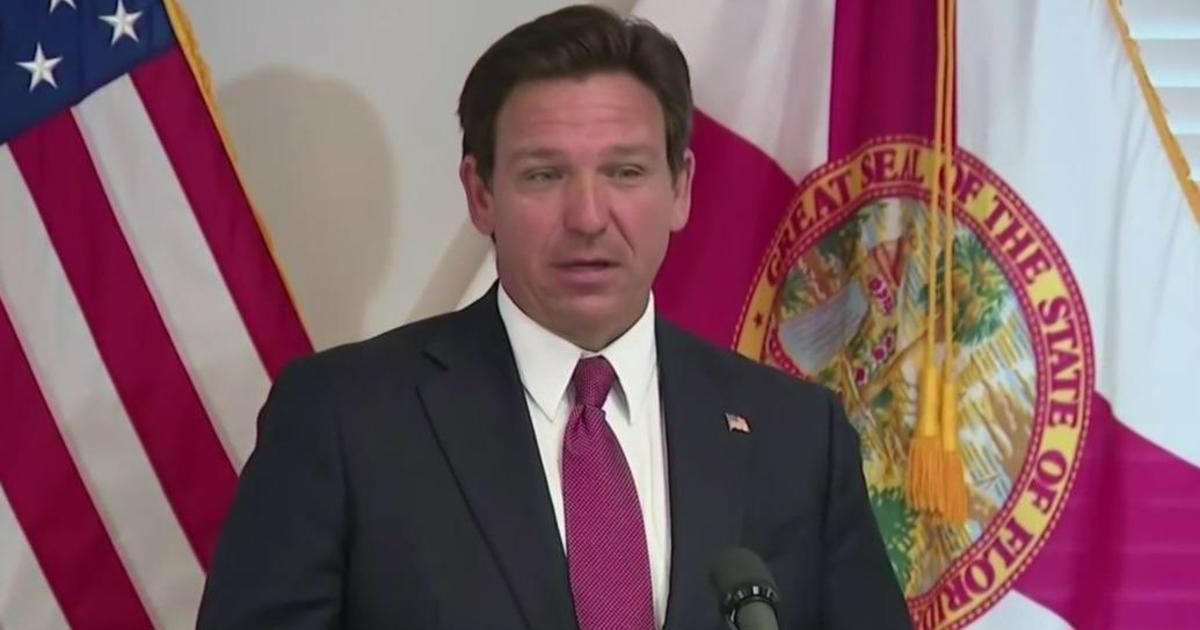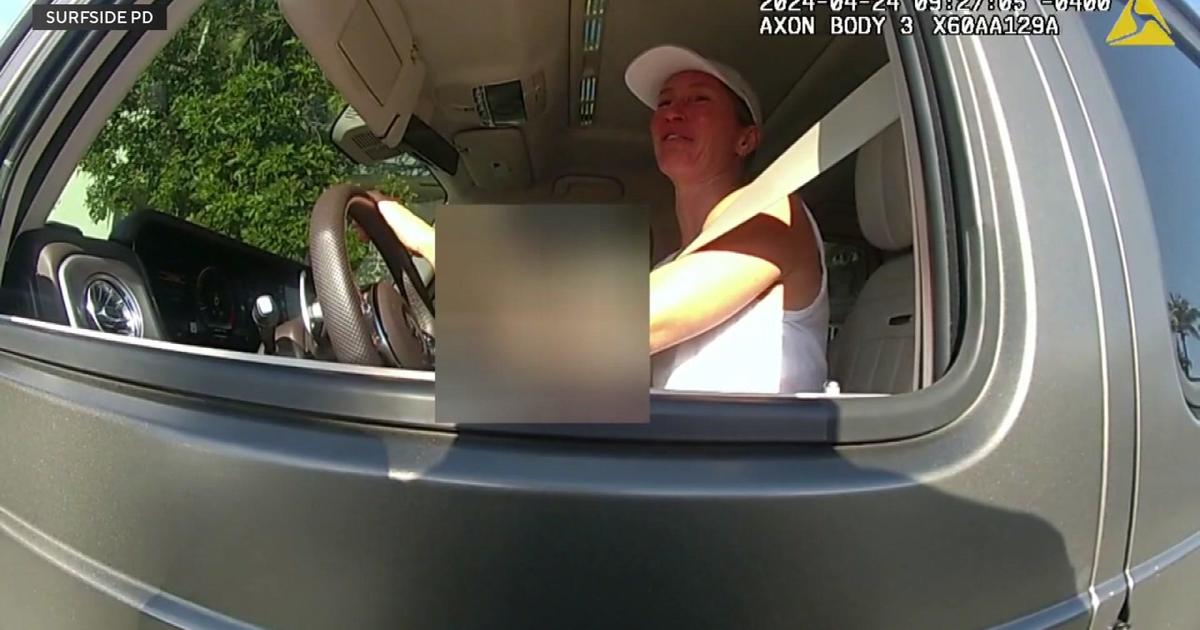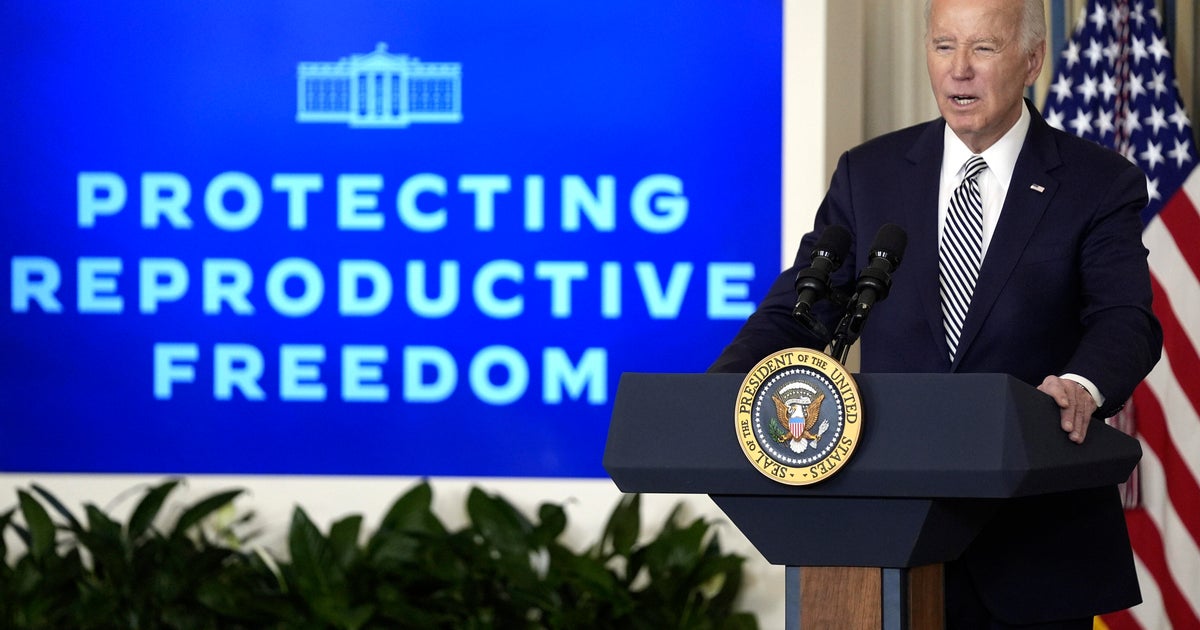Lawmakers Inch Closer To Gambling Deal
Follow CBSMIAMI.COM: Facebook | Twitter
TALLAHASSEE (CBSMiami/NSF) -- The Seminole Tribe would not be required to guarantee $3 billion in payments to the state in exchange for adding craps and roulette to the tribe's casino operations, under the latest offer in gambling negotiations between the House and Senate.
The Senate made the proposal Thursday while not backing away from other high-profile positions. Those positions include allowing slot machines at pari-mutuels in eight counties where voters have approved them, as well as limited blackjack at South Florida "racinos," and two new casinos --- with slots and cardrooms --- in Broward and/or Miami-Dade counties.
The elimination of the proposed $3 billion requirement for the Seminoles, which would have been paid over seven years, is a concession to the tribe, which has maintained that federal officials won't sign off on such a deal, something that would be required.
Thursday's meeting was the latest round in legislative leaders' attempts to reach consensus on a sweeping gambling plan built around setting the parameters for a 20-year deal with the Seminoles, as time runs out on the legislative session slated to end May 5.
"I'm excited about the direction this is going," Rep. Jose Felix Diaz, a Miami Republican who is the House's chief negotiator, said Thursday morning.
The issue of slots in the eight counties --- Brevard, Duval, Gadsden, Hamilton, Lee, Palm Beach, St. Lucie and Washington --- remains one of the main sticking points in the negotiations, after Diaz made an offer Wednesday that included major concessions to the Senate.
In that offer, the House partially agreed to the Senate's plan to allow nearly all dog and horse tracks to do away with live racing but keep more lucrative cardrooms or slots, a process known as "decoupling." The House, however, would require voters to approve decoupling in county referendums.
The Senate's counteroffer Thursday rejected the requirement of decoupling referendums and maintained a Senate position that would also allow jai alai frontons to quit holding matches while keeping more lucrative gambling activities.
The two chambers are also inching toward agreement on the issue of controversial "designated player" card games.
A portion of a 2010 agreement, known as a compact, gave the tribe "exclusive" rights to operate banked card games, such as blackjack, at most of its casinos. That portion of the agreement expired in 2015.
But the Seminoles filed a lawsuit, and a federal judge last year ruled that the state had violated the exclusivity agreement by allowing the designated player games --- in which a player acts as the "bank" --- at pari-mutuel cardrooms. The state has appealed the decision.
Wednesday's House proposal would cap the number of designated-player tables that cardrooms could have at 25 percent of the total number of tables. Bets would be capped at $25 per hand, a significant reduction from the unlimited bets that now can add up to thousands --- or tens of thousands --- of dollars.
In the offer made Thursday morning, the Senate's chief negotiator, Bradenton Republican Bill Galvano, proposed a $100 limit on the games and a 50 percent cap on the total number of tables.
Both proposals also would lower the current 35 percent tax rate on slots at racinos in Miami-Dade and Broward counties to as low as 25 percent, if the pari-mutuels agree to a maximum of 1,500 machines --- about 100 more than any facility currently operates. The Senate plan would also allow the racinos to add up to 20 blackjack tables, with caps on maximum bets.
Pari-mutuel operators remained upbeat about the direction the negotiations were headed after Thursday's meeting.
"We're happy there's movement, happy there's progress. All we've ever asked for is a road map for how to run our business," said Isadore Havenick, whose family owns facilities in Miami and Bonita Springs.
"The News Service of Florida's Dara Kam contributed to this report."



